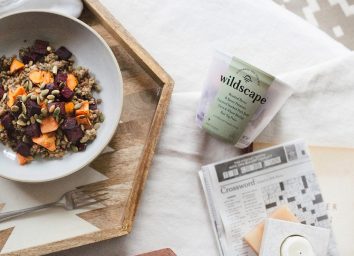14 Healthiest Foods for Your Pantry
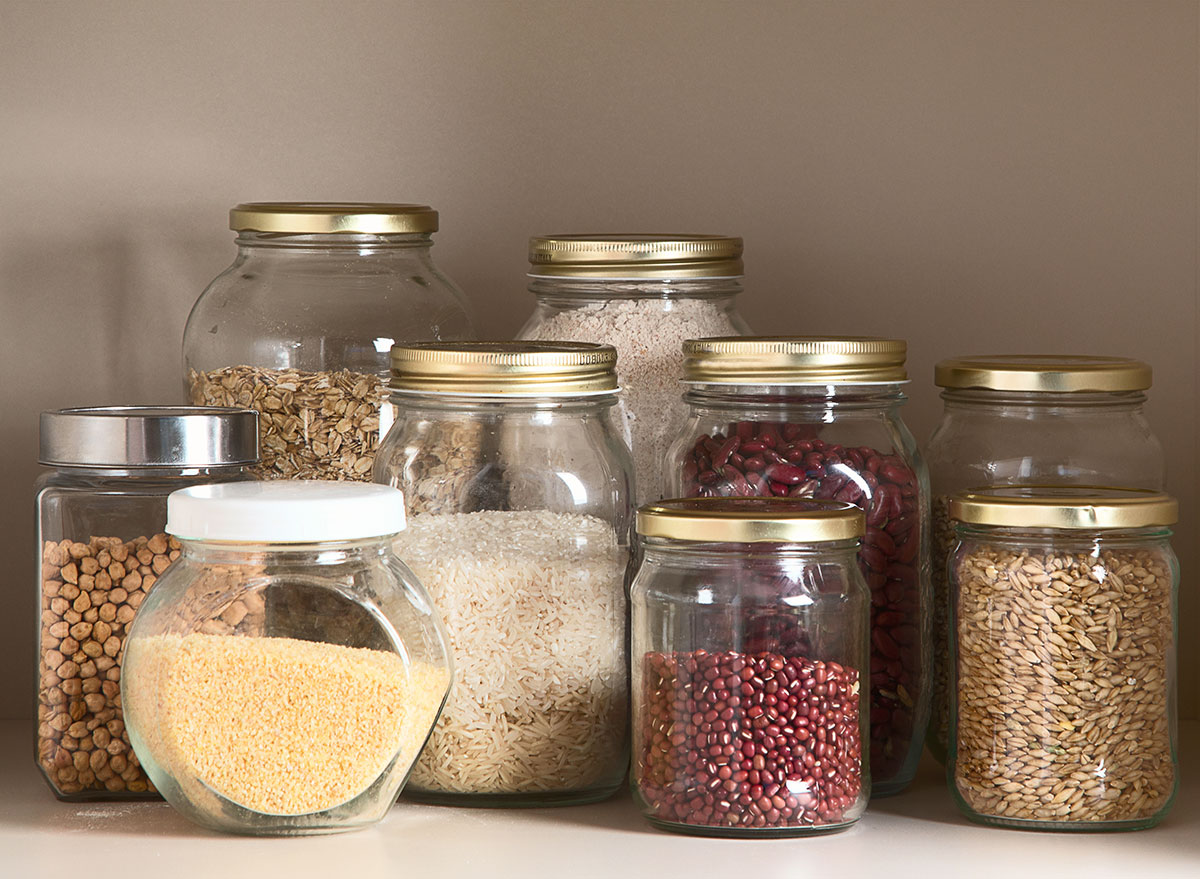
A well-stocked pantry allows you to pull together healthy meals–in a hurry–and makes it much easier to stick to your diet. To help you stay on track towards your goals, we flipped through the scientific journals to find the foods with the most impressive health benefits and then considered versatility and taste of each contender to make our final cuts. Some items you may already have, while others you’ll want to add to your list next time you head to the store.
Read on, and for more on how to eat healthy, you won’t want to miss these 21 Best Healthy Cooking Hacks of All Time.
Apple Cider Vinegar
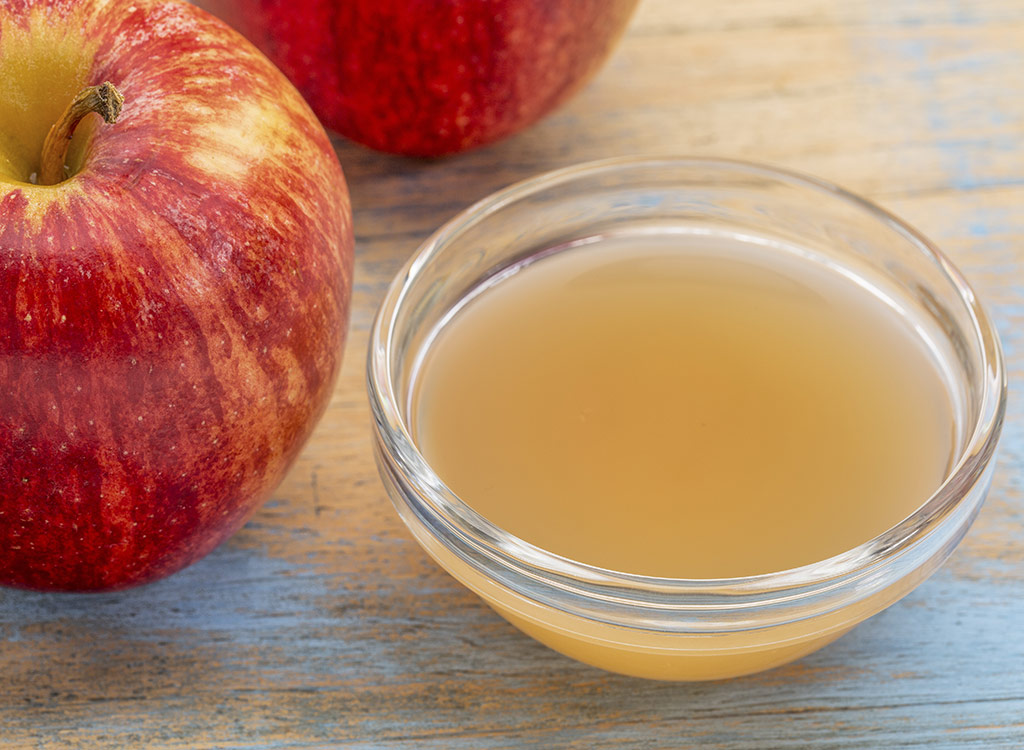
If you only buy one vinegar, make it this one. Apple cider vinegar can not only be used to whip up healthy, fat-fighting marinades and homemade salad dressings, but it also has been linked to benefits such as blood sugar regulation, weight loss, and hunger suppression.
Olive Oil
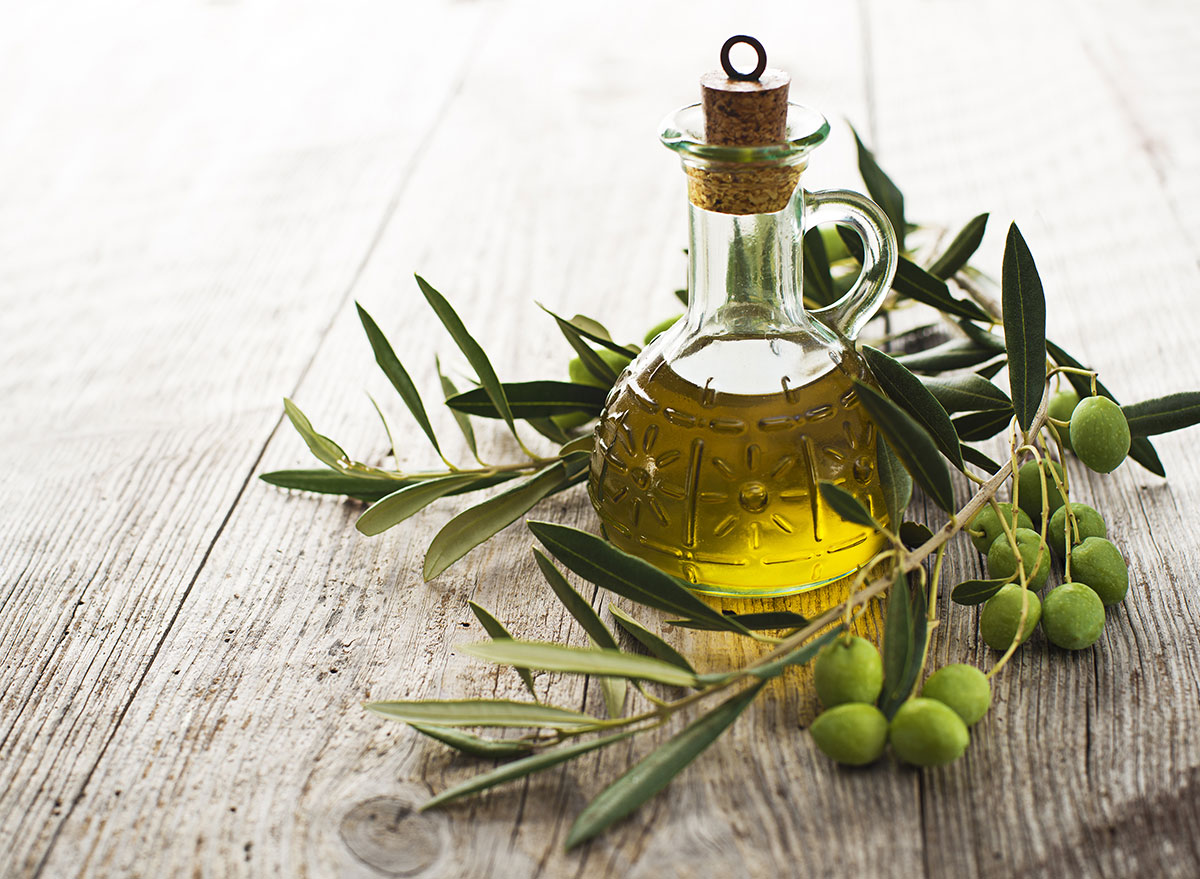
This Mediterranean diet staple can be used in place of butter, but that’s not the only benefit. As we say in What Happens To Your Body When You Eat Olive Oil, this minimall-processed cooking oil is rich in anti-inflammatory polyphenols, is linked to improving heart health, and decreasing inflammation linked to arthritis.
Mustard

Thanks to the capsaicin and phytochemicals responsible for giving the mustard its distinct flavor, eating just one teaspoon of the stuff can boost your calorie-burning furnace by up to 25 percent for several hours after you consume it, according to Oxford Polytechnic Institute researchers. Our go-to is Grey Poupon Classic Dijon because it’s a pure, low-calorie variety free of dyes and additives your body doesn’t need.
Cinnamon
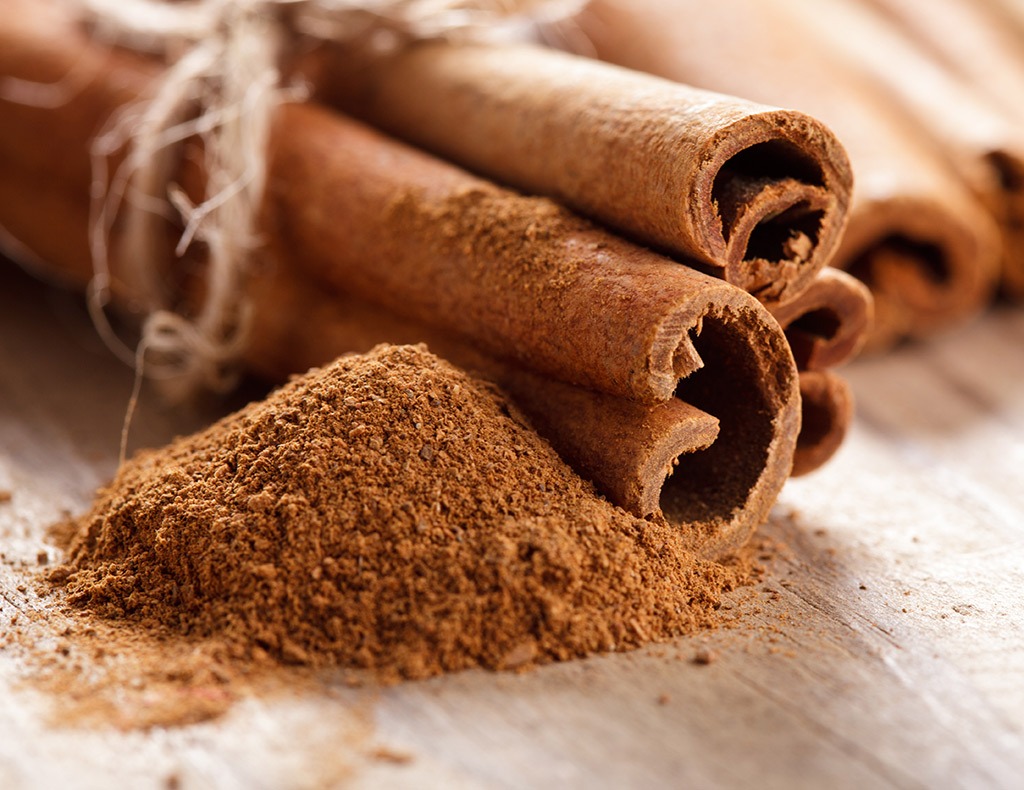
Because this sweet spice improves insulin sensitivity, when you consume it along with something sweet, less of the sugar you eat is stored as fat. It’s also shown to enhance cognitive processing and brain function. Sprinkle it into coffee, pancakes, chili, oats or Greek yogurt—it’s surprisingly versatile.
Chili Powder
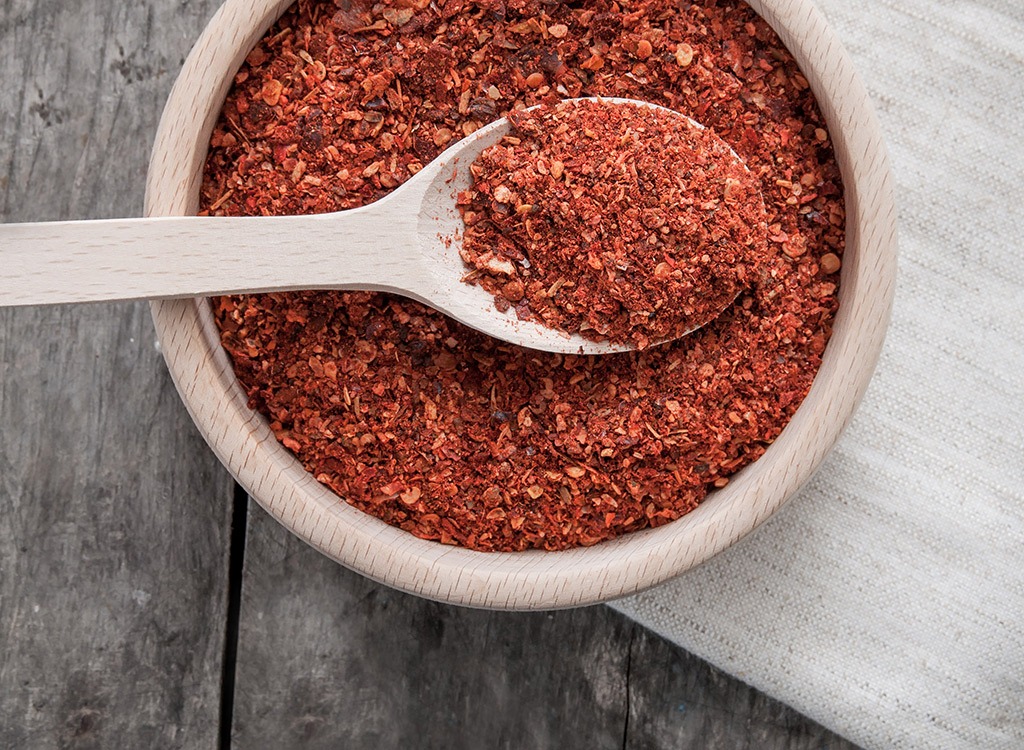
Studies suggest that this red-hot spice can do everything from lower blood pressure to clear up sinus inflammation. But fiery capsaicin, the compound that gives chiles their kick, is best known for its ability to alter key proteins found in fat. After we eat it, scientists say, it boosts metabolic rate and decreases appetite, aiding weight loss.
Black Pepper
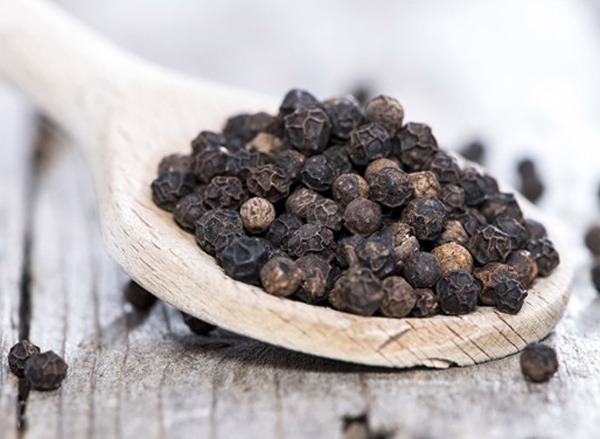
Just about every savory recipe calls for pepper, so it’s a good idea to keep it on hand. Recent animal studies also suggest that piperine, a powerful black pepper compound, may be able to decrease inflammation and stop the formation of new fat cells, resulting in less body fat and lower cholesterol levels.
Canned Tuna
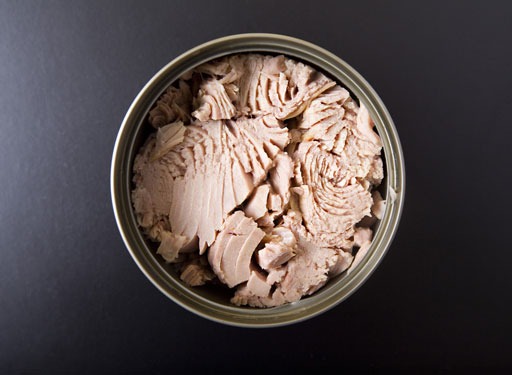
Even if you don’t eat it regularly, tuna is a great protein staple to keep stocked. When you realize you’ve run out of fresh chicken breasts and you’re in need of a post-workout hit of protein, you’ll be glad it’s there. Just don’t douse it with mayo if weight loss is your goal. Eat it plain or mix it with a bit of black pepper and balsamic vinegar if you need a bit of flavor.
Marinara Sauce
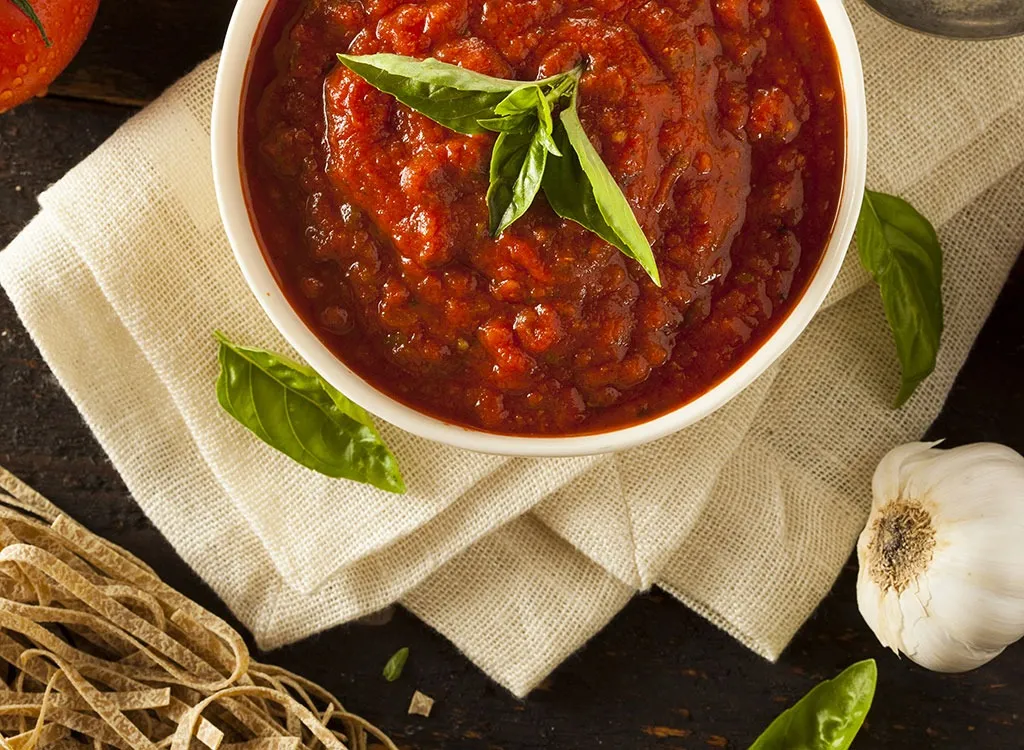
Besides serving up lycopene, a powerful antioxidant that fights off DNA-damaging free radicals, marinara sauce also brings a delicious flavor to a variety of dishes ranging from pizzas and pastas to chicken and beef entrees. Look for brands that use tomatoes, garlic, basil, olive oil and little else. Related: These Are the Best Low-Carb Spaghetti Sauces, Approved by Nutritionists.
Walnuts
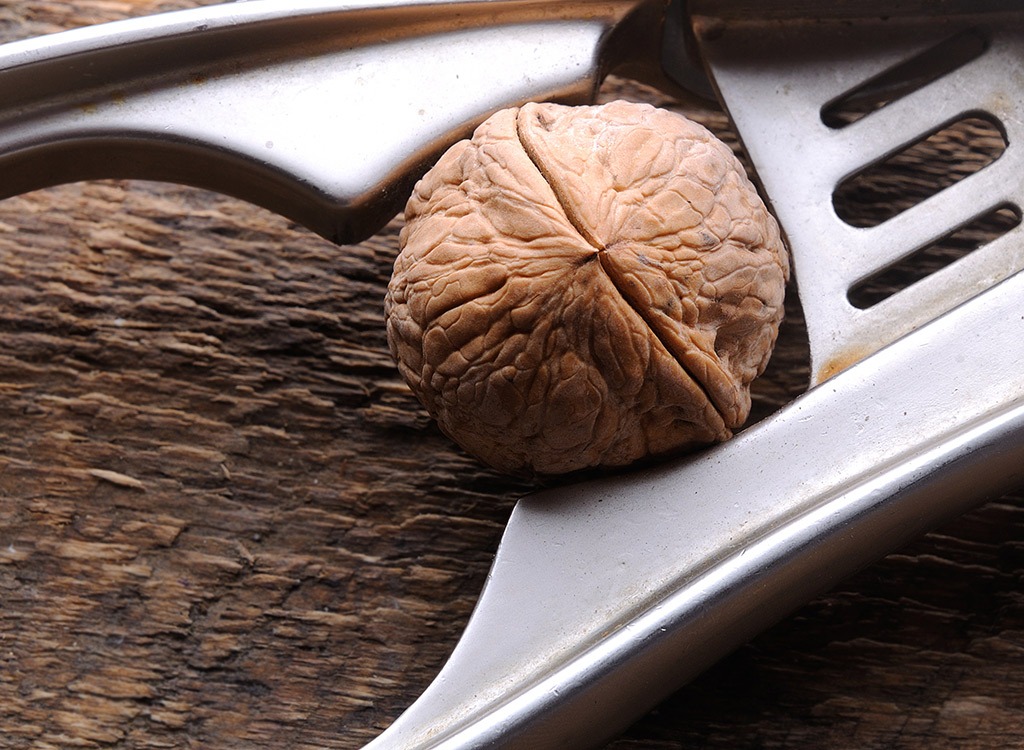
If you only have room in your budget for one type of nut, make it a walnut. Thanks to its antioxidants and omega-3 fatty acids, this brain-shaped tree nut can significantly reduce the risk of heart disease. In fact, consuming just one ounce of walnuts five times a week can slash heart disease risk by nearly 40 percent, studies show. It’s also rich in fiber and protein, so munching on walnuts can help quell hunger pangs and promote a healthy weight.
Dark Chocolate
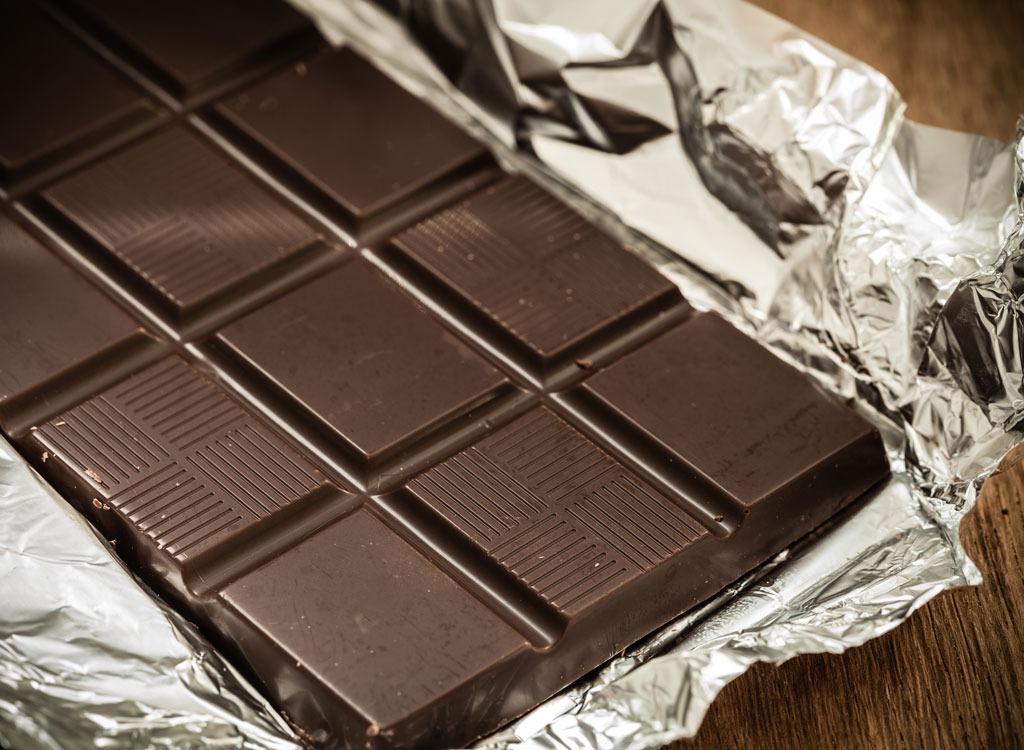
In addition to making our tastebuds sing, dark chocolate can also zap excess body fat and whittle the waistline when eaten in moderation. Keep a bar with at least 70 percent cacao in your kitchen and break off a bite whenever the craving for something sweet strikes. Along with some fresh fruit, dark chocolate shavings also make a great addition to overnight oats and Greek yogurt.
Quinoa
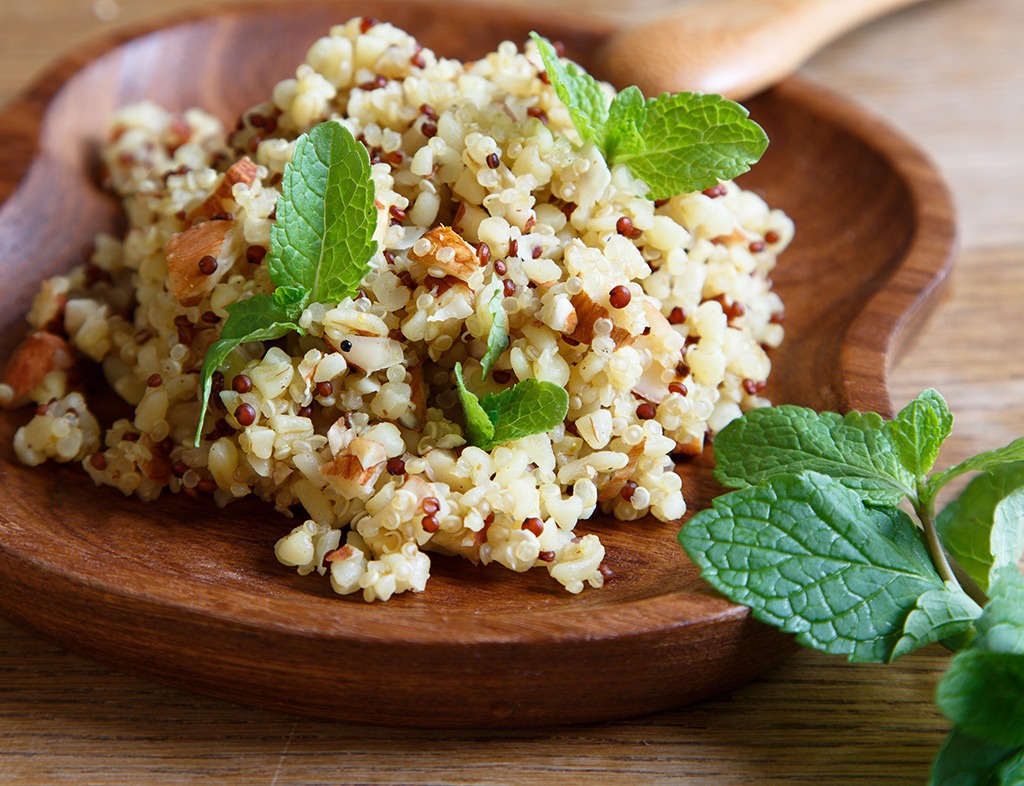
This ancient grain is packed with plant-based protein and loaded with fiber, a nutrient that aids blood sugar control. Because it’s also a complete protein (meaning it contains all nine essential amino acids), it’s also one of the best sources of plant protein out there. Use it instead of white rice as a side dish or whip up one of our favorite quinoa recipes for weight loss.
Sprouted Grain Bread
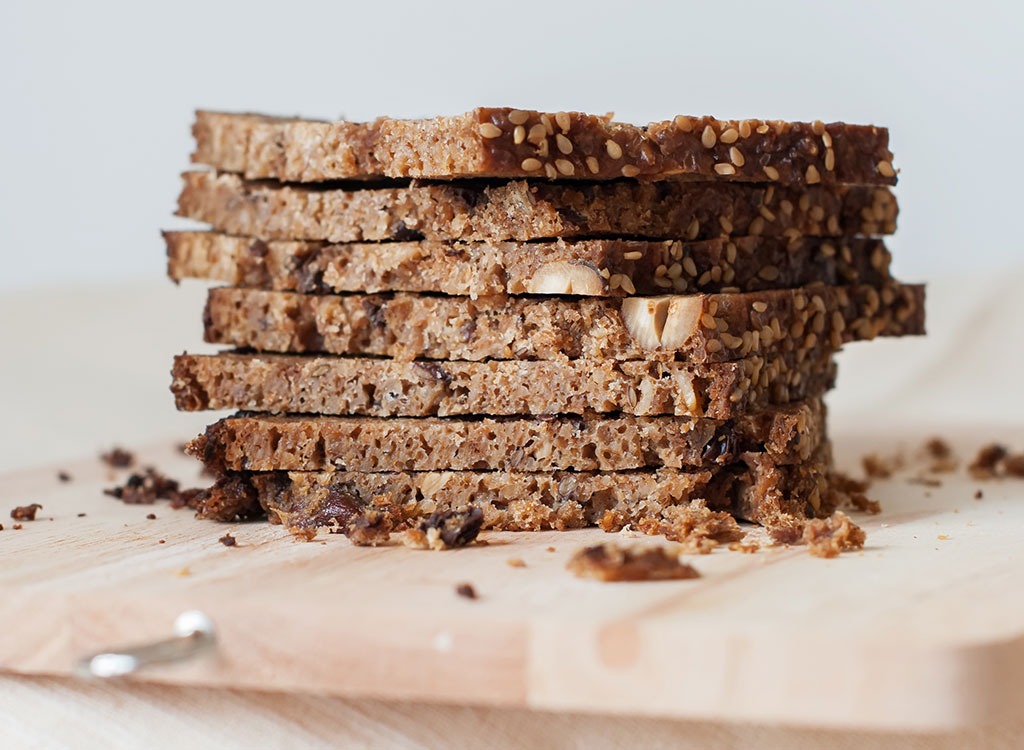
This nutrient-dense loaf is overflowing with good-for-you sprouted grains and seeds like barley and millet, and fiber- and folate-filled lentils. It also has four to six grams of protein per slice, making it a better all around pick than most other breads on the supermarket shelf.
Steel Cut Oatmeal

Leave the cold cereals on the shelf and stock up on this more filling, versatile alternative. Because it’s high in fiber and protein but low in sugar researchers say it can ward off hunger far longer than ready-to-eat breakfast cereal, and studies also suggest that eating one cup of cooked oatmeal two to four times a week can lower the risk of type 2 diabetes by 16 percent! Use the grain to make overnight oats or pulse into flour for baked goods. For more, don’t miss these 7 Amazing Benefits of Eating Oatmeal.
Beans
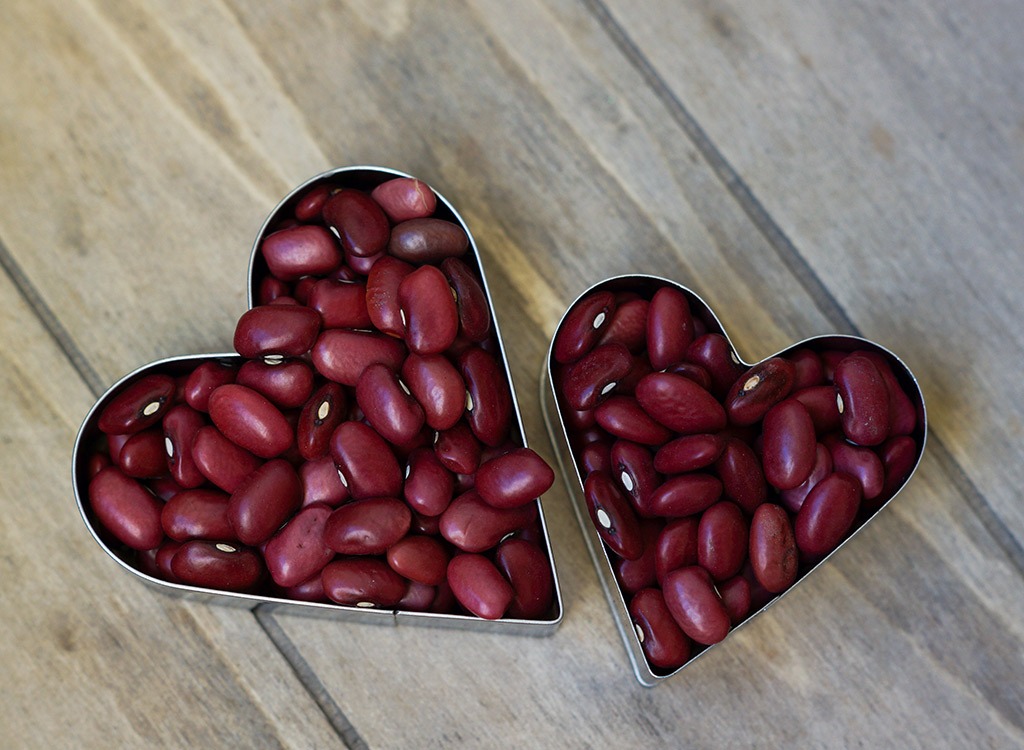
They might make you gassy, but that’s no reason to keep beans out of your pantry. They’re a great source of vegan protein and one of the best high-fiber foods, two nutrients that can ward off high cholesterol and constipation and help you stay slim. Plus, they can be added to rice, salads and soups, or used to make a homemade dip. In fact, the more you eat them (experts say we should consume up to three cups a week), the less likely you are to experience belly trouble.
